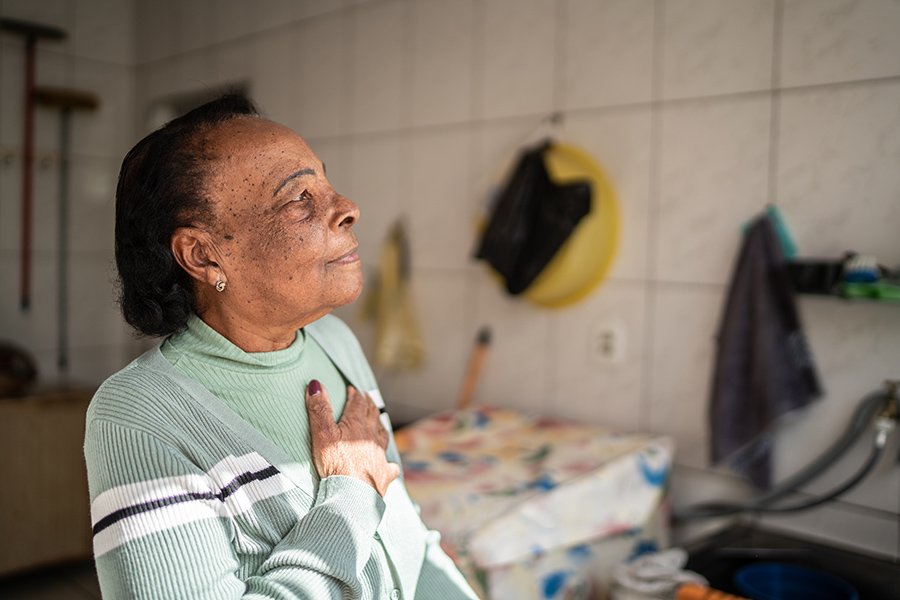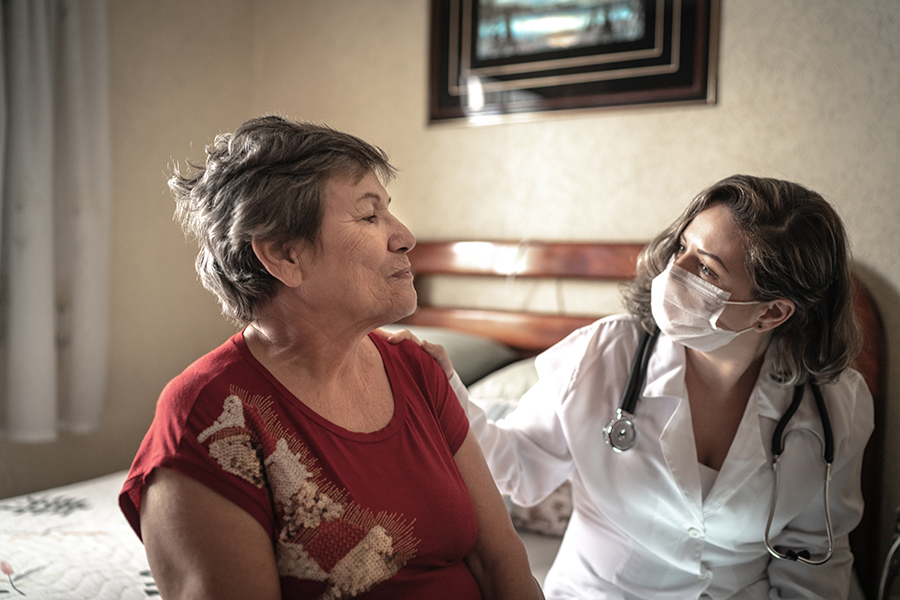Flu Symptoms
Influenza – or “the flu” – develops when a flu virus infects the respiratory system, including your nose, throat, bronchial tubes, and possibly the lungs. Primary symptoms of flu are fever, fatigue, body aches, chills, headache, sore throat, and cough. The cough is a bronchial tube irritation and is generally not productive; you’re not coughing up gunk. The flu is usually at its worst for three to four days, although the cough may linger longer. Recovery may take up to 10 days, and you may have lingering fatigue for several weeks.
There’s one catch with flu viruses: about 24 to 72 hours after you’re infected, you become contagious. Yet you may not have symptoms, so you don’t know you’re sick. You feel completely healthy and go about your daily affairs — spreading the virus wherever you go. Stay at home while you have the flu, and for at least 24 hours after your fever is gone without the use of fever-reducing medicine. Once your fever is gone for a day, you’re no longer contagious and can return to work or school. Also, you will recover more quickly if you get some rest.
The timing of flu is very unpredictable and can vary from season to season. Flu activity most commonly peaks in the U.S. in January or February. However, seasonal flu activity can begin as early as October and continue to occur as late as May.
Flu Treatment Options
There’s no single “best” treatment for flu, but there are many ways you can ease symptoms. Prescription flu drugs can shorten the time you feel sick if taken when symptoms first appear. They work best when taken within 48 hours of symptoms, but they may also prevent severe disease if taken more than 48 hours after the first symptoms. Over-the-counter cold and flu drugs can offer some relief from fever, aches, stuffy nose, and cough. They don’t “cure” the flu, but may help keep you more comfortable.
What can help? Decongestants can help you breathe by shrinking swollen mucous membranes in the nose. Saline nasal sprays can also help open breathing passages. Cough preparations, along with water and fruit juices, can help soothe a cough. If you use a multi-symptom cold medicine, choose the drug that matches your symptoms. Make sure that you don’t take two cold medicines with the same ingredients.
It’s very important to drink a lot of fluids to keep the body hydrated. This helps loosen mucus. Limit drinks like coffee, tea, and colas with caffeine, which rob your system of fluids. As for eating, follow your appetite. If you’re not really hungry, try eating simple foods like white rice or broth.
When To Seek Medical Treatment
Antibiotics will not help treat the flu or a cold. Antibiotics kill bacteria, but they do not kill any viruses, including viruses that cause the flu or colds. However, the flu can weaken the immune system and open the door for bacterial infections. If your flu starts to get better and then gets worse, you may have a bacterial infection. Antibiotic treatment may be necessary, so it’s important that you see a doctor right away. If your symptoms are severe or aren’t getting better after a week, or if you have fever for more than 3 days, see a doctor. Also call a doctor right away if you have any chronic medical conditions and are exposed to the flu.
The following symptoms are signs that flu may have developed into something serious like pneumonia. See a doctor right away if you have any of these symptoms:
- Difficulty breathing
- Persistent fever
- Vomiting or inability to keep fluids down
- Painful swallowing
- Persistent coughing
- Persistent congestion and headaches
Why are people so concerned about the flu? Because the flu virus can infect the lungs, it can cause a serious infection like pneumonia. If the flu develops into pneumonia, it may require hospitalization and can even lead to death. People with weak immune systems — the elderly, pregnant women, infants, and people with chronic health problems — are at highest risk of flu complications such as pneumonia. For caregivers of those with weakened immune systems, flu prevention is extremely important.
Tips For Flu Prevention
Flu and cold viruses are transmitted the same way: through microscopic droplets from an infected person’s respiratory system. When an infected person sneezes or coughs, droplets are sprayed onto any nearby surface or person. If they cough or sneeze into their hands (without a tissue), their hands then carry droplets to surfaces they touch. When you touch that surface, you pick up the virus. If you rub your eyes or nose, you’ve just infected yourself.
To help protect yourself and prevent spread of cold and flu viruses to people in your care:
- Wash hands frequently. Use an alcohol-based gel if you don’t have access to water.
- Cough and sneeze into a tissue or inside the bend of your elbow if you don’t have a tissue. Wash your hands afterward.
- When you cough, turn your head away from others.
- Don’t touch your eyes, nose or mouth. This prevents germs from entering your body.
- Wash and disinfect any shared surfaces frequently. Viruses can live on surfaces for up to 8 hours.
- Stay away from crowds during cold and flu season.
- Get a flu vaccine every year. Vaccines don’t give you 100% protection from the flu, but they’re the best way to help prevent it.
- Eat healthy foods to nourish your immune system, such as dark green, red, and yellow vegetables and fruits.
- Exercise regularly. People who exercise may still catch a virus, but they often have less severe symptoms and may recover more quickly.
Sources: Centers for Disease Control and Prevention, WebMD
This article was written by a contributing author at Shield HealthCare.






















